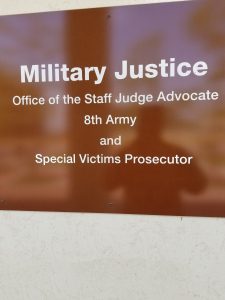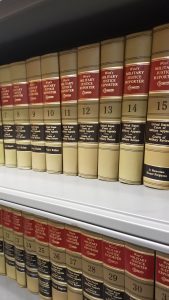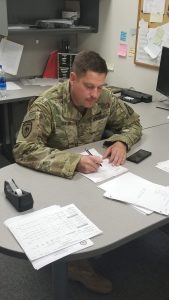









In the military there are courts-martials These are bad. Less bad, but ultimately career ending are military separation boards. Military separation boards end your military career and determine your ever-so-important discharge characterization. Your discharge characterization determines federal and state veteran benefits.
Honorable. A separation from the service with honor. The issuance of an Honorable Discharge is contingent upon proper military behavior and performance of duty.
General. Under Honorable Conditions (also termed General Discharge). A separation from the service under honorable conditions. The issuance of a discharge under honorable conditions is contingent upon military behavior and performance of duty which is not sufficiently meritorious to warrant an Honorable Discharge.
Other Than Honorable. Under Other Than Honorable Conditions. A separation from the service under conditions other than honorable. It is issued to terminate the service of a member of the service for misconduct.
Dishonorable Discharge. (only given in court-martials. Not in separation boards.).
Entry Level Discharge. (not given at separation boards or courts-martials). A separation initiated while a member is in entry level status., i.e., boot camp, initial military training.


All military branches have their own version of military separation procedures. The US Army and National Guard are the most familiar to me as a United State Army Judge Advocate for nearly 15 years. I have served as an active duty Army judge advocate deployed overseas. With most of my career being in the US Army Reserves and Utah Army National Guards.
In the Army separation boards can be driven from your unit up the chain of command, or be Headquarters, Department of the Army downward driven (“HQDA”). Misconduct short of convening a court-martial drives separation boards.
Army separation boards are governed by AR 635-200, AR135-178 and AR15-6. Relevance and due process are also key concerns. The military rules of evidence do not apply and often boards are very informal and loose in how they receive evidence. The Utah National Guard generally follows their respective active duty component regulations in guard boards, but also have local regulations specific to the Utah guard.
The scope of military separation boards is very limited. Army separation boards decide
(1). To retain you in the Army or to separation you.
(2). If separation from the Army is proven, then what discharge characterization to give you. Honorable, General or Other Than Honorable.
(3). The separation board may suspend a decision to separate you for 12 months.
The general Army rule, whether active, guard or reserve is that if you have less than 6 years in the service, you don’t get a separation board to plead your case to. If your command is trying to obtain an “Other Than Honorable” discharge, then you are always entitled to a separation board. If you have six or more years of service, you get a board.


The most knowledgeable attorneys to defend your separation boards are former, or current Army Judge Advocates. Judge Advocates are military language for lawyers. In all military branches you get a free judge advocate to defend you. Each branch calls their public defenders something different, but they are free public defenders assigned to defend you. Army trial defense services, or Air Force area defense counsel are pretty good choices and defending service members is all they do for that short assignment.
The only drawback with military public defenders is that their assignment is usually only 2 years and hardly enough time to get good at it. Further military public defenders are young in their military careers and have not accumulated the skills and raw courtroom advocacy experience compared to their civilian counterparts. Reserve and National Guard public defenders are often not practicing attorneys at all. The US Army JAG core is mainly composed of government lawyers, non-practicing lawyers or corporate, non-litigators. Private practice trial lawyers are a minority in the US Army JAGC. The litigator’s life is incongruent with lots of reserve time Army work.
Common misconduct driving a military separation board is:
(1). DUI. Drunk Driving. 2nd or 1st offense.
(2). Height weight failures.
(3). Failing the fitness test numerous times.
(4). Marijuana use. Illegal drug use. Substance abuse. Alcoholism.
(5). GOMOR. A General Officer Memorandum of Reprimand.
–The right to appear in person and defend at the board with a private attorney, or appointed attorney.
–The right to challenge voting board members.
–The right to remain silent or to submit written statements rather than testifying.
–The right to present evidence and witnesses.
–The right to submit evidence, such as answers, depositions, sworn statements, unsworn statements and court documents.
–The right to cross-examine.
The 807TH Medical Command (Deployment Support). A 2 star medical command headquartered in Salt Lake City, Utah. The 807th medical command is a huge nearly corps level reserve support command with significant downtrace units. Most separations are conducted physically at Fort Douglas, Salt Lake City, Utah.
76th Operational Response Command, Salt Lake City, Fort Douglas, Utah. The 76th Operational Response Command is an Army Reserve command providing operational engagement and joint enabling capabilities for homeland response. A large general command with downtrace units across the United States. Boards are conducted at Fort Douglas, Salt Lake City, Utah.
Utah National Guard. Draper, Utah. The Utah National Guard houses Air and Army National Guards Soldiers under 10,000 state wide. All separation boards are conducted at the Draper Joint Force Headquarters just off I-15.